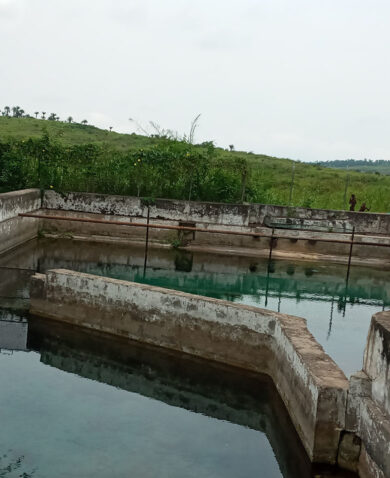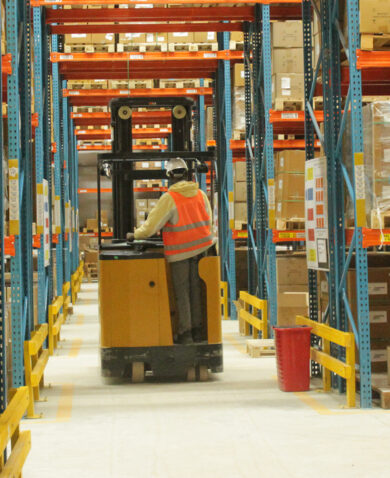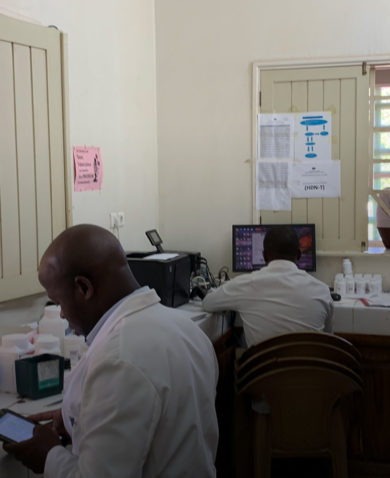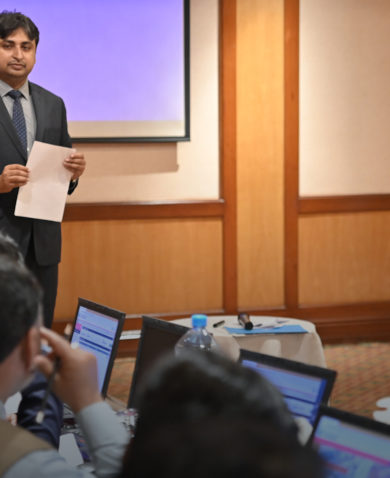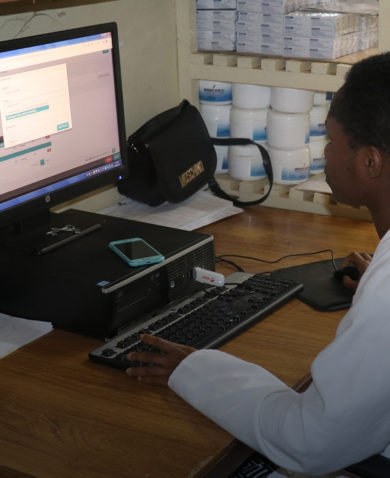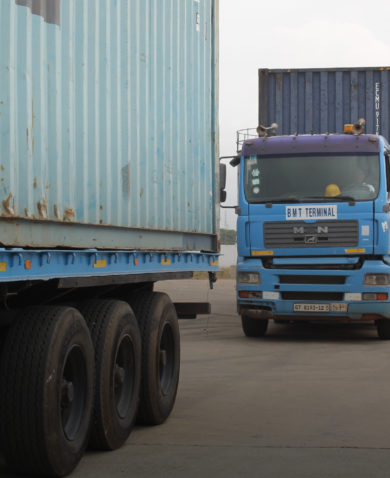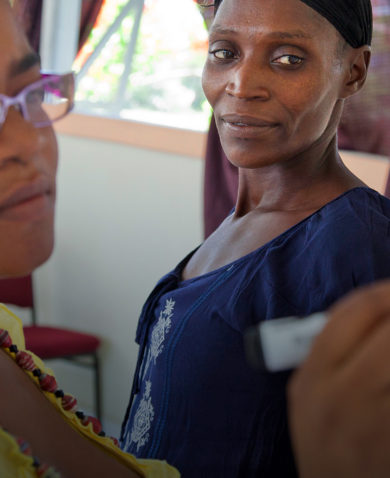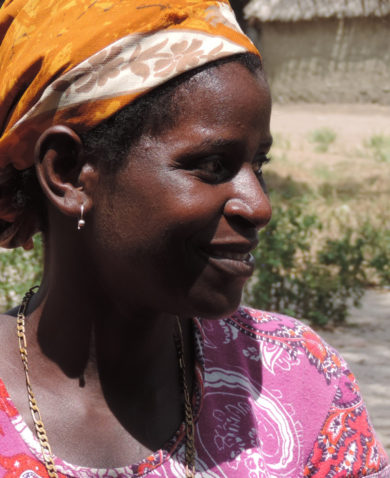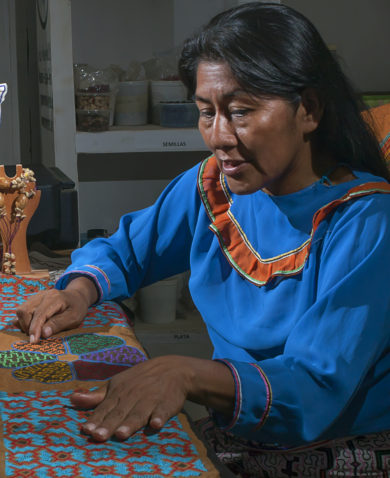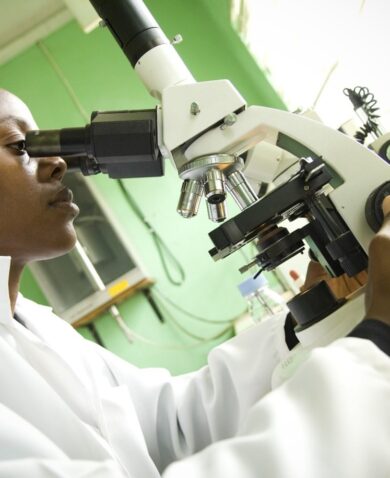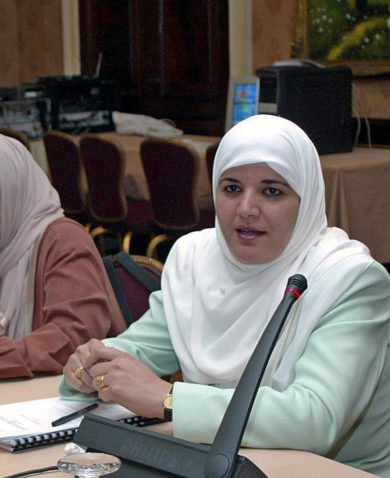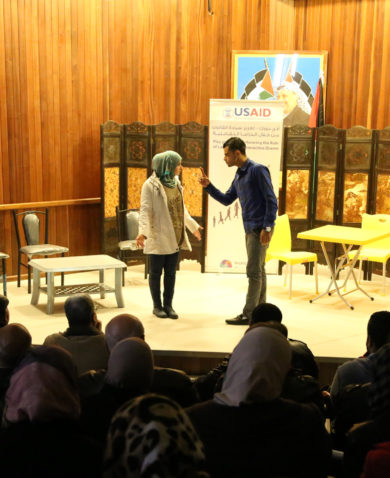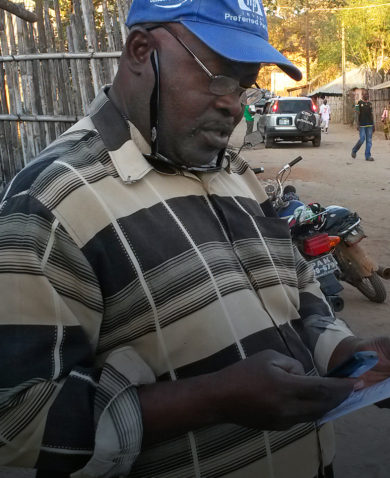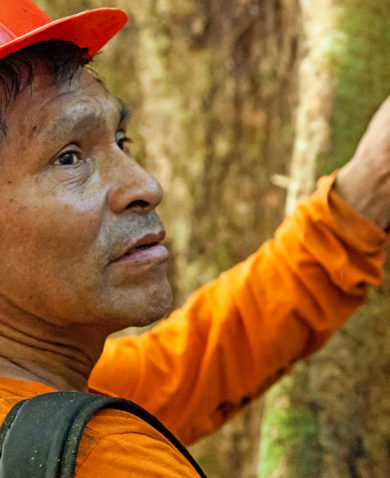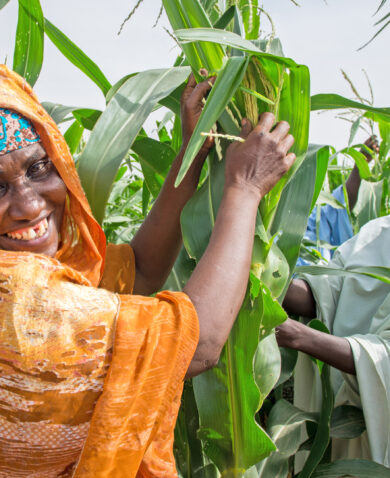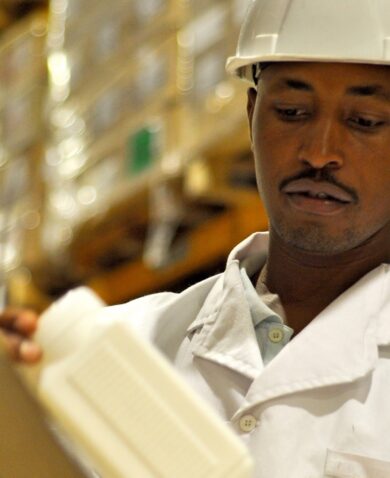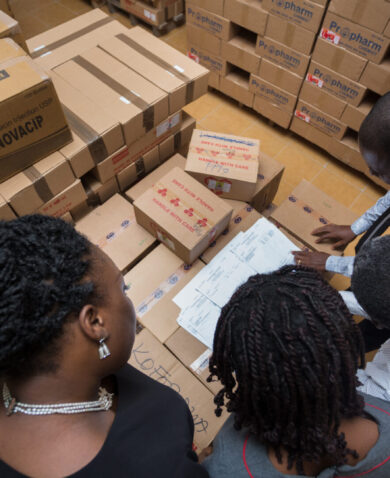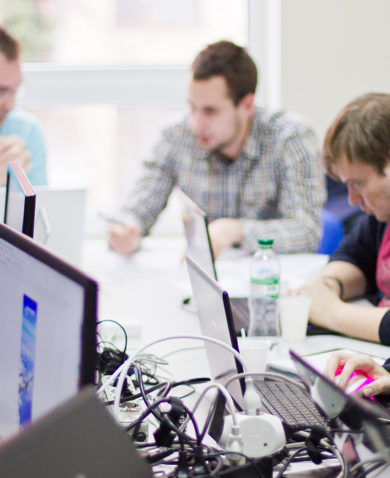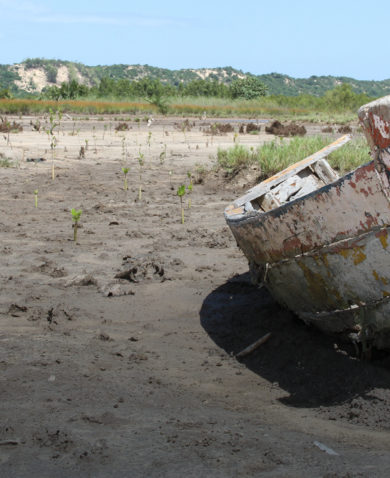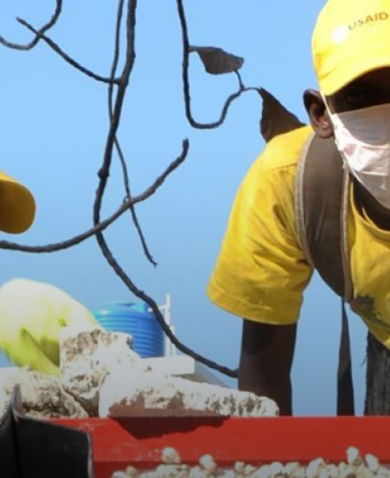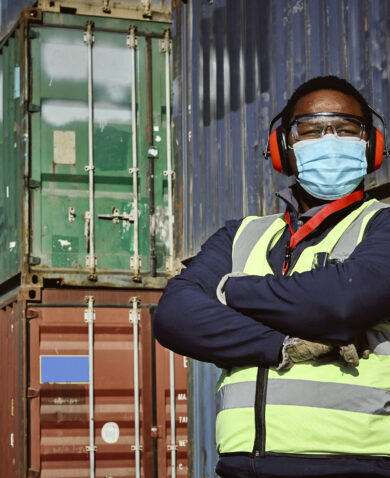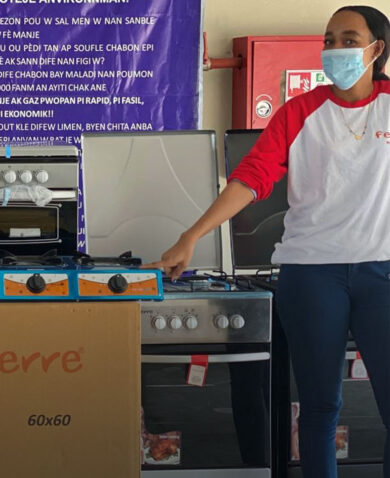
Creativity and Innovation During a Global Crisis
April 21, 2020 | 5 Minute ReadCreativity and innovation are critical for the global community to fight the impacts of COVID-19. Chemonics' president and CEO Jamey Butcher explores lessons for navigating this unprecedented challenge.
The full implications of the COVID-19 pandemic are yet to be determined, but it has disrupted nearly every aspect of socioeconomic activity at a breadth and scale not seen in modern memory. Now activities that once seemed routine — school, work, travel, errands, and social gatherings —present serious health risks, and the resulting lockdown is having multiple secondary impacts that leave those most vulnerable in our communities even more so. The global economy is projected to contract sharply by 3 percent and more than 1.5 billion children and young people are being affected by school closures worldwide, among other far-reaching effects. Throughout this crisis, public policymakers will continue to face the unenviable challenges of protecting the health of citizens and reviving their economies. To address the scale of need stemming from this pandemic, we will have to draw from all of our creativity and innovation as an international development community.
Innovation has been one of our core values for decades at Chemonics, and it is a shared responsibility and opportunity for each of our 5,000 global professionals because the work we do each day requires it. To accomplish our mission, we recognize that we must take the best solutions from anywhere in the world and adapt them in a manner and scale that meets the unique needs of the large populations we serve. Therefore, during this World Creativity and Innovation Week, I’ve reflected on the following lessons we have learned and urge the global development community to act now to stem the effects of COVID-19 in low- and middle-income countries in the following ways:
Understand the nuances and complexity of the challenges faced
Those already struggling with food insecurity, access to health and education, and economic opportunity are now faced with even greater challenges on a daily basis. The majority of professionals working for Chemonics grew up in the communities and nations we serve, and they inherently understand the nuances of these complexities. Though this is a global pandemic, we recognize from experience that there are no “one-size-fits-all solutions” and meaningful change has to happen at a community level. Even with the current remote work restrictions, we have to continue to engage locally and understand the nuances of and barriers to potential solutions. We will do everything we can to keep our 5,000 professionals engaged throughout this crisis to support them in this challenging time and benefit from their deep and diverse experience.
Bring multiple perspectives to the forefront to inform our response efforts
At our best, we’re connecting these exceptional professionals into networks of problem solvers in a multitude of technical areas. When we problem-solve, we do so by engaging a diversity of perspectives to gain insights so that we might better find the solutions that will be truly make a difference. All of our multidisciplinary expertise is needed to address the convergence of challenges faced by our beneficiaries and counterparts in the wake of the COVID pandemic. This is why we are actively promoting and investing in expanding our own knowledge networks across our 10 technical practice areas and more than 100 projects to forge these vital connections.
Partner to find solutions
In most cases, once the problem is understood, we move forward with the knowledge that somebody, sometime, somewhere has already solved one similar to it. Finding that person or partner requires creativity and connectivity. It is for this reason that we maintain a large network of global and local partners and a means of rapidly accessing them to find solutions. We do this because we believe that collaborating to identify solutions across industries achieves impact faster and at a far greater scale. Chemonics consistently partners with leaders in the sectors in which we work to harness the best ingenuity and knowledge available to tackle the complex challenges we face daily. Partnering and collaborating with one another to tackle the challenges now and ahead should be an essential element of all of our interventions.
Adapt solutions to local needs
Once the best or most appropriate solutions is identified, it must be adapted quickly to meet local needs. This step is even more critical now and will be in the months and years to come. For example, in Tunisia, we are working with local partners to identify innovative ways to support the private and public sectors within the current constrained environment. This includes deploying digital learning for workforce development and providing grants to an initial group of Tunisian small and medium enterprises, including three companies producing medical apparel to hospitals and clinics who cannot currently meet demand for their products and a company that takes care of medical waste that cannot keep up with current hospital demand. For our education projects, we are quickly adapting distance learning approaches locally by pushing out lessons on WhatsApp, delivering interactive audio instruction by radio, conducting SMS campaigns to parents, and digitizing early grade storybooks with audio files.
Invest and go deeper and further
Sometimes we encounter problems that need further research. In the past few years, we have invested in Solutions Labs to push the boundaries of traditional development with the goal of finding new solutions to challenges we face. Whether we are adapting an evaluation methodology, partnering with Arizona State University to brainstorm supply chain solutions with top leaders, or developing new approaches to environmental conservation, our Solutions Labs are an active opportunity for us to pilot, test, and refine new approaches to address complex challenges with leading researchers and experts. Investing in finding and deploying solutions like these will be critical in addressing the direct and secondary effects of this pandemic.
Scale to the need
The biggest challenge we face in addressing the COVID pandemic is scaling our solutions to the millions in need. This is where we have to go further than we have ever gone as a community and where we have to learn from our experiences to ensure our efforts can help address every aspect of socioeconomic wellbeing. We are distilling our decades of experience into standards and a framework for scaling that captures how we have achieved breakthroughs in bringing products and services to new markets and clients across technical sectors. Through our partnership with the UNLEASH Global Innovation Lab and role as the Lead Scale Partner, we have co-created a comprehensive curriculum to engage entrepreneurs and partners alike in a systematic approach to scaling their solutions. And we are continuing to actively pursue technology to scale solutions in other parts of our work. In doing so we are offering mobile, early grade education for migrating refugee populations, delivering just-in-time medical supplies and safeguarding vineyards by drone, leveraging Internet of Things technology for ambient temperature monitoring in our supply chains, and tracking lifesaving health commodity data through an easy-to-use smartphone app.
We are in a unique and challenging moment, and as a global community, we must move quickly and be more creative and innovative in how we tackle the direct and indirect effects of COVID-19. We look forward to leveraging and sharing our experiences, collaborating with others in the global community, and tackling these challenges together. It is only through identifying, adapting, and scaling solutions that we can hope to achieve truly transformative development impact.
As we look forward to additional opportunities to engage as a global community and innovate together, please will join us at the first-ever Global Digital Development Forum (GDDF) on May 6, 2020 from 6 to 22:00 GMT. Chemonics is co-organizing the event with USAID, DIAL, TechChange, ICT4D|CRS, Save the Children, and IntraHealth. Together, we will leverage online collaboration tools to offer the development community an inclusive and interactive virtual conference experience.
Posts on the blog represent the views of the authors and do not necessarily represent the views of Chemonics.






